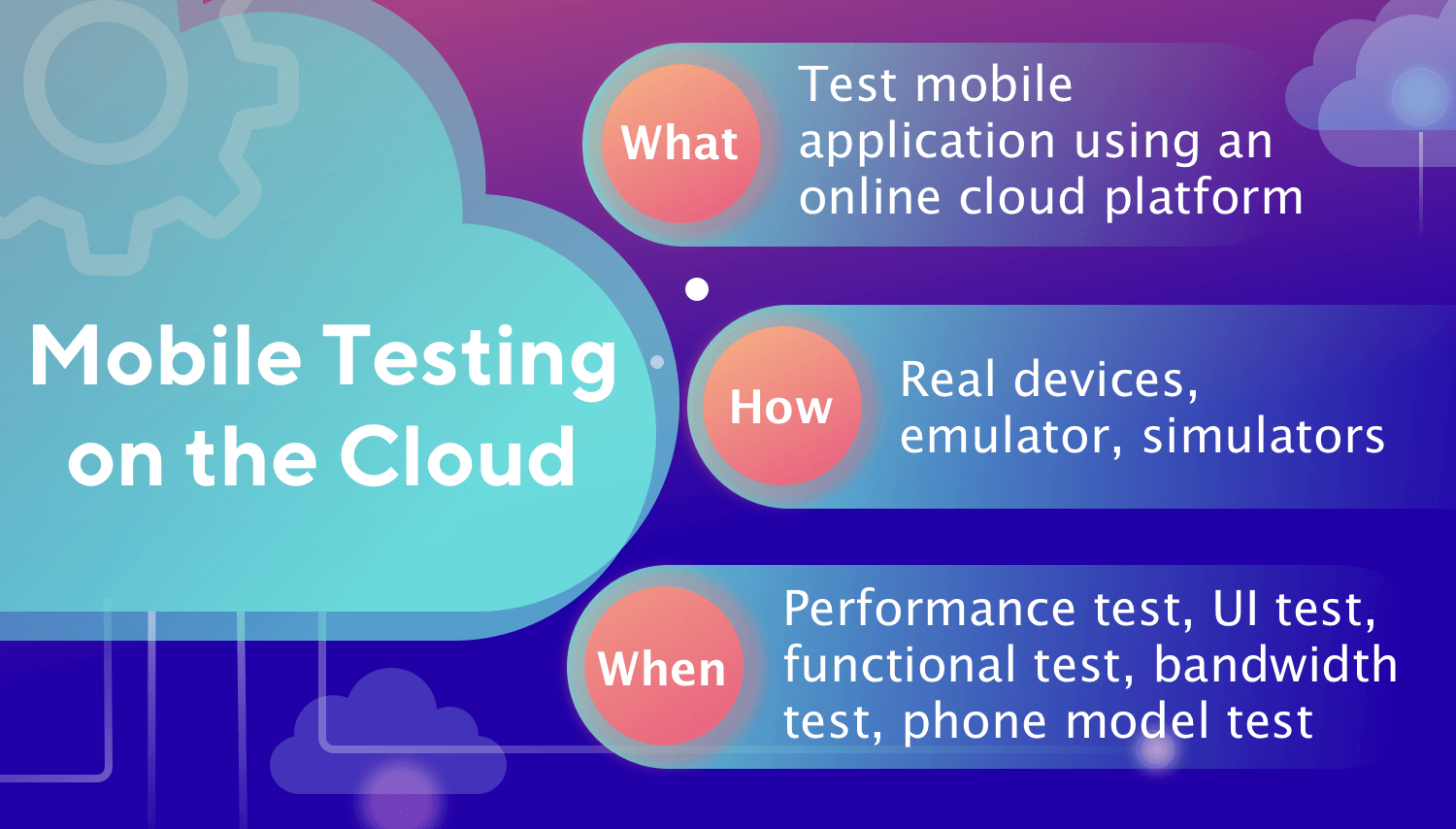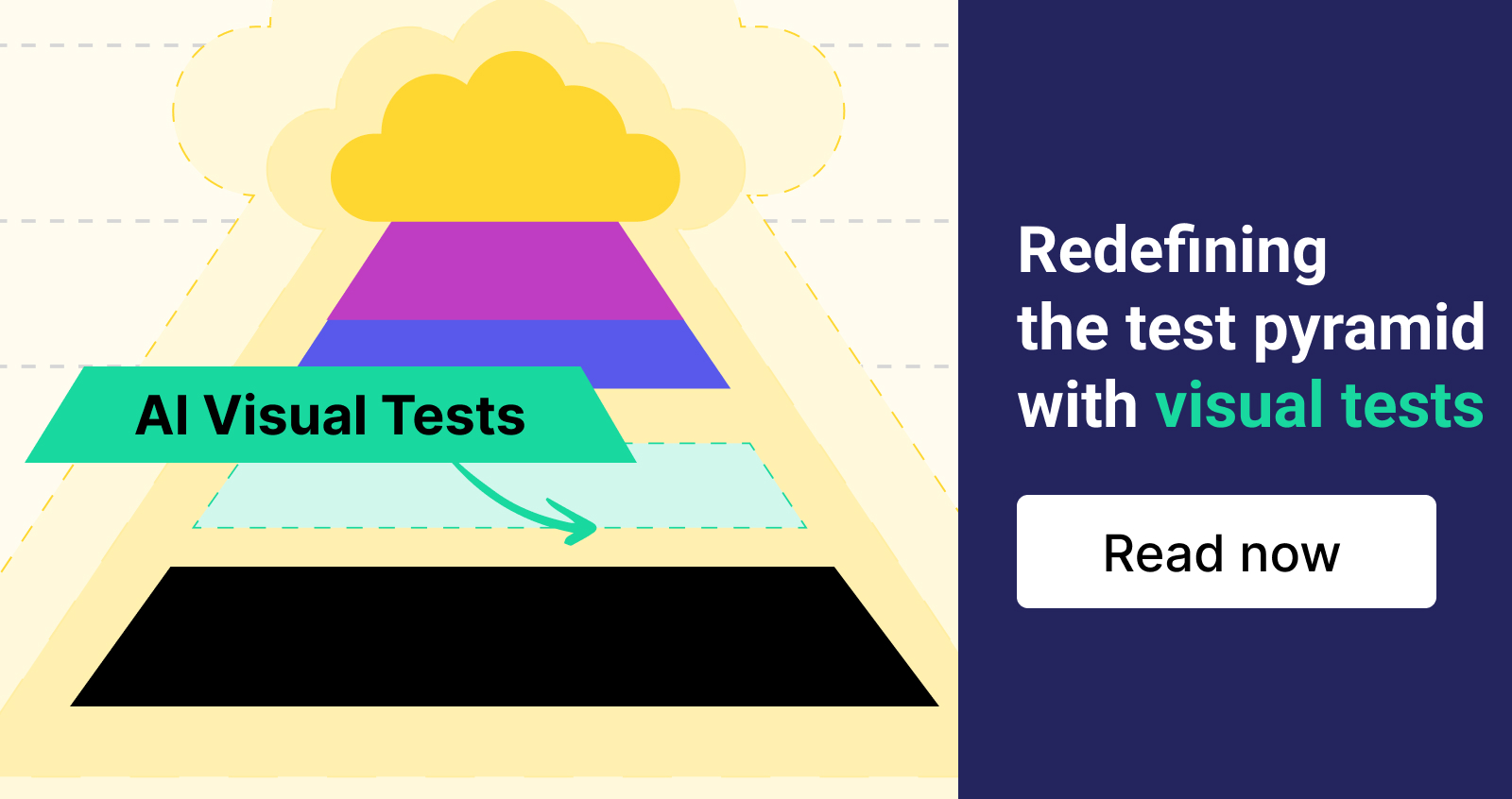Mobile Cloud Testing 101 | Introduction and Implementation
With 2.1 billion smartphone users and 10,000+ mobile apps released daily, the mobile application field seems lucrative yet more competitive than ever, especially in the testing landscape. To account for such demands, entering cloud mobile testing: transparency and mobility allow businesses and developers teams to optimize their mobile app testing pipeline while ensuring the application quality.
What is Mobile Cloud Testing?

Ever wonder why all your Instagram pictures still appear on your account regardless of the devices you use to log in? That’s the magic of the “cloud” – servers accessible through the internet with the ability to hold an unlimited amount of database and software. All the computing and storage happens online, independent from any local devices. Therefore users would only need a stable internet connection to access the data whenever, wherever.
Developed from the same cloud technology, mobile cloud testing is when teams test the mobile application using an online cloud platform rather than on-premises. Cloud testing extends many options, increasing the flexibility for testers to conduct their mobile testing.
- With cloud technology, teams can extensively perform functional testing, stress testings, phone model testing, OS version testing, load test, UI testing, bandwidth, latency testing, etc.
- Regarding testing environments, device cloud (or mobile testing environments) offered through cloud technology is of extensive numbers and great variety. Aside from real mobile devices, testers can also test on virtual machines: simulators and emulators. While emulators mimic most of the production environment’s hardware features and software features, simulators only resemble the software variables and configurations, but not the actual hardware that will host the application in production.
Read more: Simulators vs Emulators vs Real Devices | Mobile Testing Differences
Why Mobile Cloud Testing

There’s no denying the benefits of cloud technology in everyday lives. When applying to mobile test, most of those benefits remains valid, if not extended:
- Easy availability: With cloud technology, testers can access a wide range of environments, devices, OS platforms, versions regardless of local devices they’re using. Such availability also applies to test schedules, as the AUT and testing platform are available for testing anywhere and anytime.
- High scalability: There is no limit to the amount of data that a server can hold. Testers can also test their application using multiple devices simultaneously, all without compromising the app quality.
- Unlimited test automation integration: with the help of automation tools, the cloud allows you to scale both platform coverage and platform elasticity, thus enhance team efficiency without sacrificing the app quality
- Cost reduction: performing cloud-based mobile app testing minimizes the cost of setting up test labs or internal infrastructure. It also significantly cut the maintenance cost as your service provider manages the “cloud.”
- Cross-time collaboration: the ability to access files regardless of location and devices frees teams from the physical aspect of data, thus team collaboration. It also provides excellent transparency for project management.
Implementation Of Mobile Cloud Testing

It’s not difficult to integrate cloud mobile testing into your project. Your implementation plan should have the following detail :
- Parameter of your AUT for cloud-testing: Some criteria for an app to be considered for cloud testing are those with large target audiences that need extensive performance tests, complicated UI or imaging features, Native mobile apps.
- Prerequisites for your cloud testing platform: This includes supported testing frameworks, mobile environments, automation tools, etc.
- Candidate for cloud platforms: Major public clouds (AWS, Azure) offer cloud-based mobile testing services with little testing features. Teams can also use specialized cloud-based software testing solutions like Kobiton. Another option is automation testing tools that provide integration for cloud-based software testing. Among these Top 15 mobile testing tools available in the industry, any tool can maximize the use of cloud technology. For an all-inclusive solution, teams can try Katalon as this automation tool is made for testers of all experiences and is scalable for teams or projects of any size.
- POC for cloud implementation: Although any mobile testing strategy leveraging the cloud will be more agile and scalable, it’s still advisable that teams detailed out a solid plan with optimization points. For instance, you should use a parallel testing approach as it utilizes cloud-testing strength: the ability to run virtually an unlimited number of tests at once.
Click here to learn how to apply the codeless solution to mobile testing.
Conclusion
Cloud technology, when applied correctly, continues to provide great convenience and transparency regardless of industries. The cloud’s online storage and computing nature create great flexibility: all your data is in one place, and all you need is a wifi connection to access the data. So businesses and developers should adopt cloud mobile testing into their development pipeline to ensure their competitive edge on the market.





